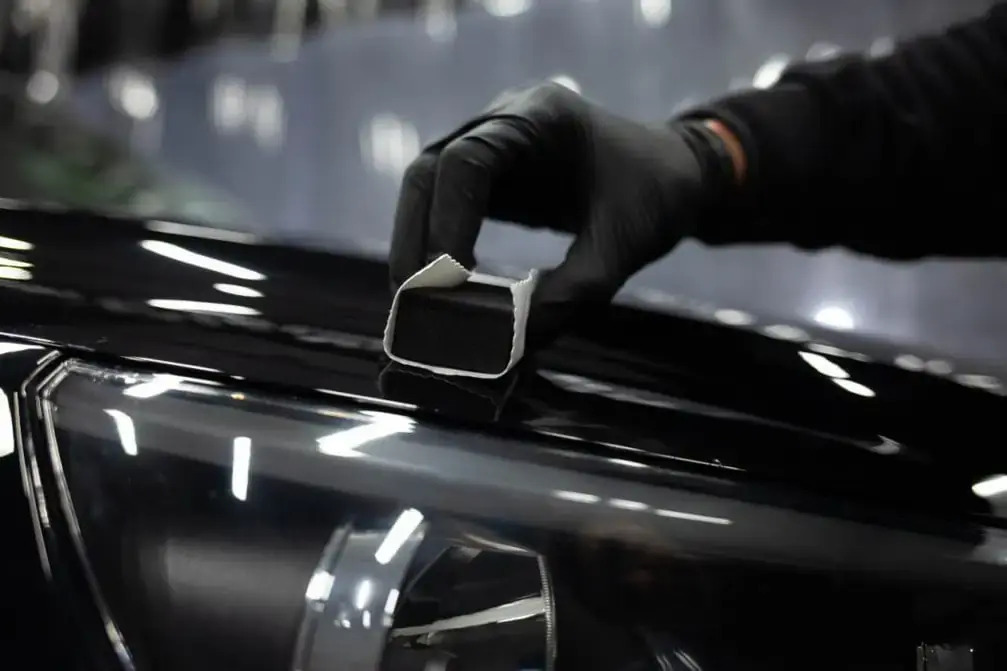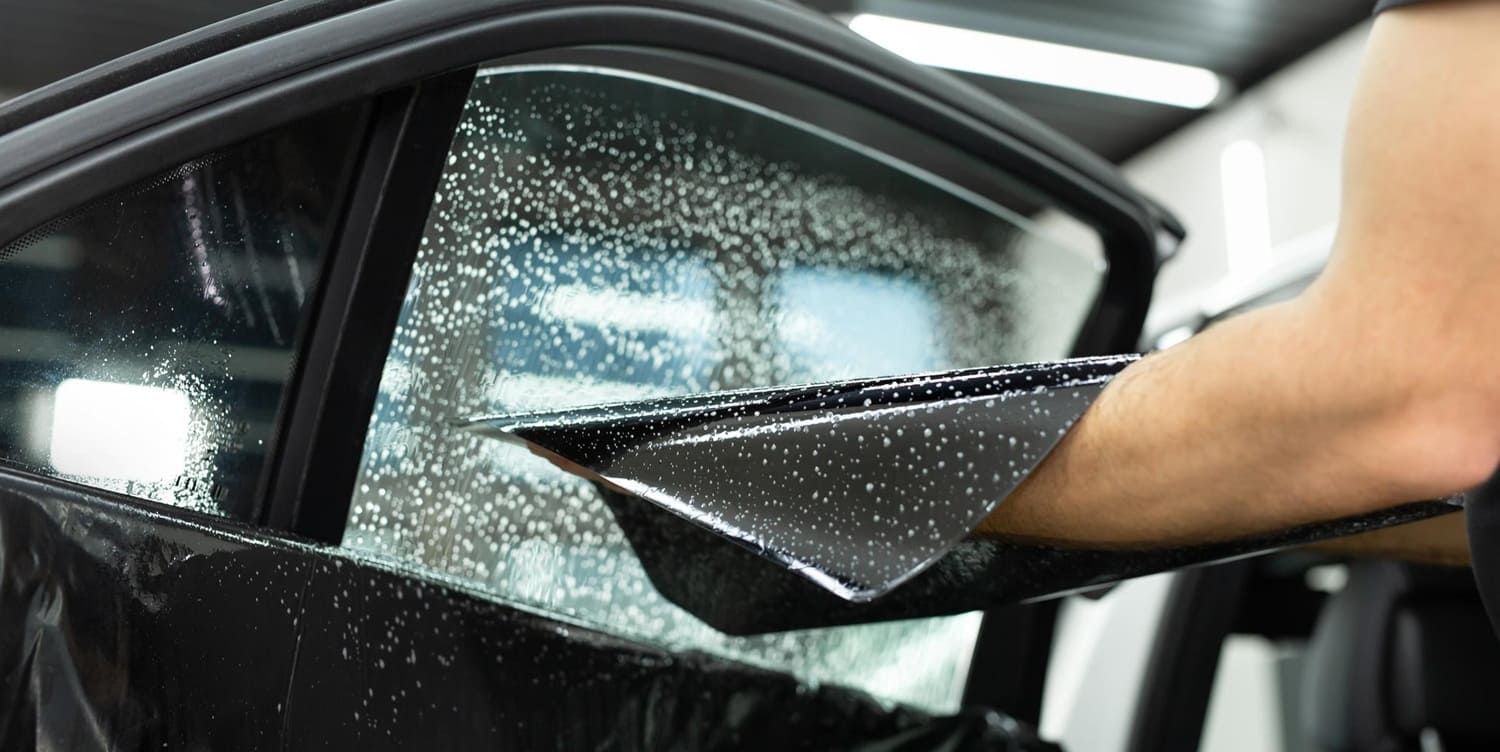Window Film vs. Tinted Glass: Which Offers Better Privacy and UV Protection?
When it comes to enhancing privacy and protecting against harmful UV rays, homeowners and vehicle owners often face the dilemma of choosing between window film and tinted glass. Both options offer distinct advantages, but understanding their differences can help you make an informed decision. In this comprehensive guide, we'll delve into the nuances of , examining factors like privacy, UV protection, aesthetics, cost, and maintenance.
What is Tinted Glass?
Tinted glass refers to glass that has been treated during the manufacturing process to achieve a specific color or shade. Usually, metal oxides or pigments are added to the glass to produce this coloration. There are two primary types of tinted glass:
- Factory-Tinted Glass: This kind of glass has a consistent appearance and integrated features since the tint is integrated throughout the production process.
- Aftermarket-Tinted Glass: This glass is tinted after manufacturing, usually through a coating or film application.
Tinted glass is frequently used in homes, buildings, and automobiles to promote privacy, lessen heat transmission, and reduce glare.
What is Window Film?
Window film, often referred to as tinted film on car windows, is a thin laminate film that can be applied to the interior or exterior of glass surfaces. It's usually made from polyethylene terephthalate (PET), a thermoplastic polymer resin of the polyester family. Window film is available in various types, including dyed, pigmented, metallized, ceramic, or nano, each offering different benefits.
Learn More: Does Wrapping a Car Damage the paint
Privacy and UV Protection: A Comparative Analysis
Privacy
- Tinted Glass: Offers a built-in level of privacy by reducing visibility from the outside. However, the privacy level might not be as customizable as with window film.
- Window Film: Allows you to customize the amount of privacy to your liking by selecting from a variety of styles and tints.
UV Protection
- Tinted Glass: Provides some level of UV protection. The level of protection varies depending on the tint's darkness and color, but it can significantly reduce UV transmission through your windows.
- Window Film: Can offer higher UV protection, with some films blocking up to 99% of harmful UV rays. This can help protect your skin and prevent fading of interior furnishings.
Aesthetic Considerations
- Tinted Glass: Makes use of few colors and tones to create a modern, consistent look. Once installed, it is a more permanent solution.
- Window Film: Extremely adaptable; comes in a rainbow of hues and patterns. To accommodate evolving tastes, it can be simply upgraded or substituted.
Cost Comparison
- Tinted Glass: Production and installation charges usually drive up the price. A larger outlay of capital is required, but the payoff may be greater longevity.
- Window Film: Typically less expensive, yet prices can vary greatly depending on type and quality. Using it to enhance your current windows is a budget-friendly option.
Learn More About: How Much Will It Cost to Repaint a Truck
Durability and Maintenance
- Tinted Glass: Longer lasting and more resistant to wear and tear. You may clean and maintain it like any other surface without worrying about peeling or bubbling.
- Window Film:Could need to be replaced every so often because to normal wear and tear. Scratching and peeling are possible with time, but proper cleaning agents make it easy to restore.
Installation Process
- Tinted Glass: Requires replacing your current windows entirely, which can be a more invasive and time-consuming process.
- Window Film: Can be applied to existing windows, making it a less invasive option. It can be installed by professionals or as a DIY project.
When to Choose Window Film
Consider opting for window film if:
- You want a cost-effective solution to upgrade existing windows.
- You desire flexibility and customization in terms of privacy and aesthetics.
- You prefer an easier installation process without the need for full window replacement.
When to Choose Tinted Glass
Opt for tinted glass if:
- You're building a new home or vehicle and prefer a permanent solution.
- You want a sleek, integrated look with minimal maintenance.
- You're willing to invest in a higher initial cost for long-term durability.
Also Learn About: Does Car Detailing Fix Scratches?
Right on Detail: Your Trusted Partner in Window Solutions
At Right on Detail, we specialize in providing high-quality window film solutions tailored to your specific needs. Whether you're looking to enhance privacy, protect against UV rays, or improve the aesthetics of your vehicle or home, our team of experts is here to assist you.
Our Services Include:
- Professional Window Film Installation: Our trained professionals can install any kind of window film you choose, including privacy, decorative, and UV protection films.
- Custom Tinting Solutions: Choose from a variety of shades and designs to achieve the desired look and functionality.
- Maintenance and Repair: We provide ongoing support to ensure your window films remain in optimal condition.
Why Choose Right on Detail?
- Expertise: Our team has years of experience in the window film industry, ensuring high-quality installations.
- Quality Products: We use only top-grade materials to ensure durability and performance.
- Customer Satisfaction: At Right on Detail, our priority is ensuring that every customer is fully satisfied with their experience. From initial consultation to post-installation support, we stand by our commitment to delivering excellence.
- Affordable Options: Whether you are considering tinted window film for your vehicle or home, or comparing window film vs tinted glass, we provide competitive pricing and packages that suit every budget.
- Tailored Recommendations: Not sure whether to go for tinted film on car windows or a full window glass tinting upgrade? We provide personalized recommendations based on your goals, location, sun exposure, and lifestyle needs.
Special Considerations for Vehicles
Automotive Privacy and Protection
One of the most common uses of window film is in automotive applications. Applying tinted film on car windows offers:
- Enhanced privacy by reducing visibility from the outside
- UV protection to keep skin healthy and upholstery from deteriorating
- Cooler interior temperatures, reducing reliance on air conditioning
- Stylish appearance that enhances vehicle aesthetics
While some vehicles come equipped with tinted glass, these factory tints are often lighter and may not offer the same level of UV filtering as high-performance films. In these cases, applying an aftermarket tinted window film can be a smart upgrade.
Legal Regulations
It's important to be aware of local tinting laws. Regulations vary by state and country, with specific limits on visible light transmission (VLT). Whether you choose window film or tinted glass, ensure the product meets legal standards to avoid penalties.
Residential and Commercial Applications
Home Window Solutions
In homes, both window film and tinted glass are used to improve comfort and privacy. Here’s how they compare:
- Tinted Glass: A long-term solution often incorporated during construction or major renovations. It adds value and reduces the need for blinds or curtains.
- Window Film: A flexible retrofit solution ideal for existing windows. It can be customized to address specific needs such as UV protection, glare reduction, or decorative enhancement.
If your home features colorful glass or custom shapes, window film is often the better choice due to its adaptability.
Office and Commercial Spaces
In commercial settings, privacy and energy efficiency are major concerns. Window glass tinting with films can:
- Reduce energy bills by blocking heat
- Prevent screen glare for better productivity
- Add privacy to meeting rooms or workspaces
- Enhance the look of office exteriors
Architectural window film can even include branded graphics or frosted finishes for added visual appeal.
Environmental Benefits
Both tinted glass and window film contribute to energy savings, but window films offer more flexibility in how and where they’re applied.
- Energy Efficiency: By reducing solar heat gain, tinted window film helps maintain indoor temperatures, reducing the need for cooling.
- Sustainability: Films can be removed and replaced without wasteful window replacements, making them a greener solution over time.
Maintenance and Longevity
Care Tips
- Tinted Glass: Clean with standard glass cleaners and non-abrasive tools. Avoid harsh chemicals that can damage the tint.
- Window Film: Use a soft cloth and mild soap solution. Steer clear of cleansers with an ammonia basis as they might gradually deteriorate the film.
Lifespan
- Window film typically lasts between 5 to 15 years depending on exposure and quality.
- Tinted glass can last decades, making it more durable, but much harder to replace or upgrade.
Customization and Style
Window film allows for a high degree of customization. Whether you're going for a sleek, modern appearance or want to maintain a natural light flow while enhancing privacy, films come in a variety of:
- Shades (from light to limo dark)
- Finishes (matte, reflective, satin)
- Colors (including options that mimic colorful glass)
- Patterns (geometric, frosted, or decorative)
Tinted glass, while more limited in design choices, does provide a seamless look that is often preferred in high-end architectural design.
Safety and Security
Beyond just UV protection and privacy, both window film and tinted glass can add a layer of security.
- Window film can help hold shattered glass together during break-ins or accidents, reducing injury risks.
- Tinted glass provides a slightly tougher barrier than standard glass, but doesn’t offer the same safety features as certain security films.
For areas at risk of break-ins or storms, security-grade tinted window film is a cost-effective way to enhance protection without replacing the glass.
Which Option Is Right for You?
Factor
Tinted Glass
Window Film
Initial Cost
Higher
Lower
Installation
Invasive
Non-invasive
Customization
Limited
Extensive
UV Protection
Moderate
Up to 99%
Privacy Options
Fixed
Adjustable
Maintenance
Low
Moderate
Energy Savings
Good
Excellent
Style Flexibility
Low
High
Replacement/Upgrades
Difficult
Easy
Final Thoughts: Window Film vs. Tinted Glass
When it comes to window film vs tinted glass, the right choice depends on your specific needs. If you're building from scratch and want a permanent, seamless solution, tinted glass might be ideal. But if you're looking to retrofit, want more style and UV protection flexibility, or just need an affordable privacy solution, tinted window film is the better route.
At Right on Detail, we recommend scheduling a consultation with our experts. We'll assess your space or vehicle, explain the pros and cons, and help you decide the best fit — whether it's tinted film on car windows or high-grade window glass tinting for your home or office.
Contact Right on Detail today for a free quote on your window film installation. Discover how we can enhance your privacy, boost UV protection, and add style to your space with industry-leading materials and experienced technicians.
Bibliography:
- https://bernieswindowtinting.com/window-film-vs-tinted-glass/
- https://en.wikipedia.org/wiki/Window_film
- https://www.tintintegrity.com/comparing-solutions-for-privacy-and-uv-protection-window-film-vs-tinted-glass




